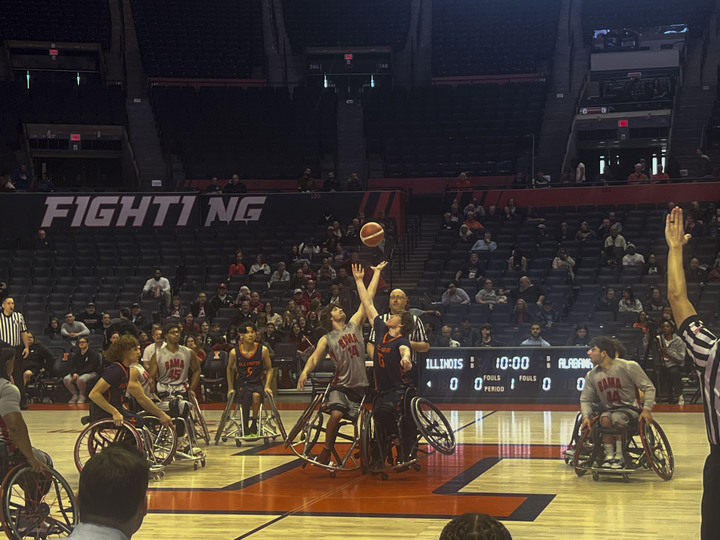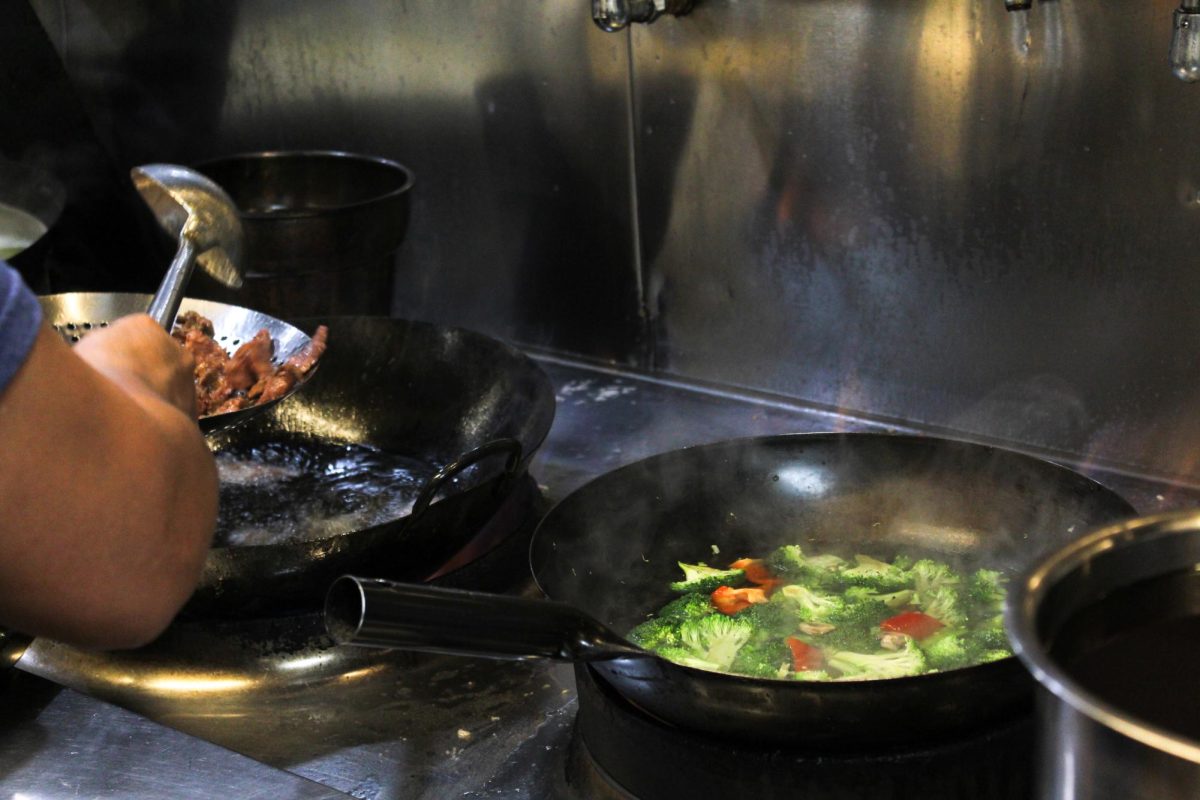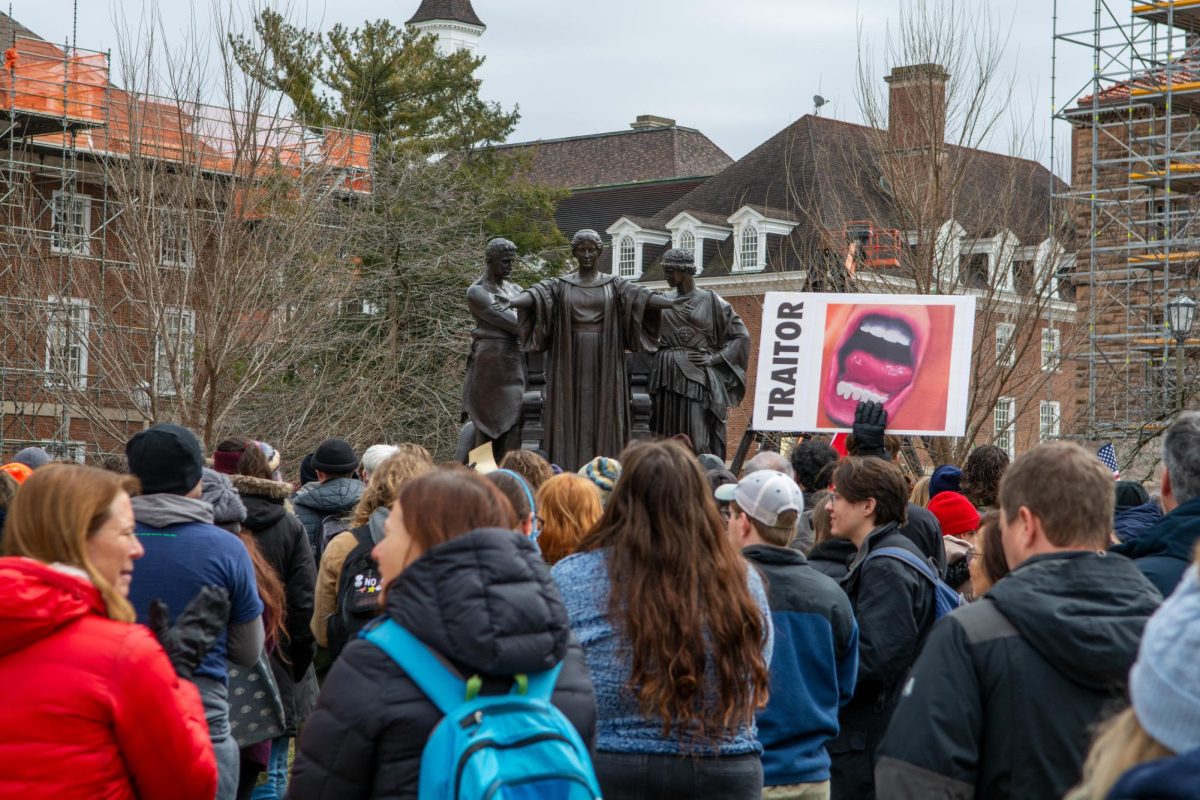As several hundred striking graduate students assembled on the Quad on Monday, students chose whether to cross picket lines. The Graduate Employees’ Organization’s held its first day of protest against the University’s position on tuition waivers.
Picket lines encircled Gregory Hall, the Foreign Language Building and the English Building at around 8:30 a.m.
“I believe it’s been positive.” said Caroline Nappo, co-president of GEO and graduate student about the picketing. “We did have a really great turnout considering it was cold and rainy.”
Courtney Cooper, sophomore in Business, said she understood why the GEO was striking, but did not want her grades compromised because of it.
“I feel like there could be some other way, perhaps, to get this solved,” Cooper said.
Get The Daily Illini in your inbox!
“I am not saying that it is the fault of the graduate students, but the (undergraduate) students should not have to suffer for the possibility of grades being affected and not knowing about going to classes.”
Kerry Pimblott, lead negotiator for the GEO, announced to a crowd of protesters that it had won major concessions from the University, including eliminating the possibility of graduate students being forced to take furloughs.
“We control this campus; we decide if they have instruction on this campus,” she told the crowd.
Pimblott said the GEO would not agree to any contract that does guarantee tuition waivers.
According to a press release from the University, no changes to the current policy on tuition waivers would be made without bargaining with the GEO.
“The University is absolutely committed that the tuition waiver and benefits will not be reduced to students who remain in good standing,” said Robin Kaler, University spokeswoman.
Alisha Janssen, senior in LAS, said she did not agree with the demands the GEO were making.
“It’s not really fair that we have to pay for an education, and they are complaining about getting paid for getting an education,” Janssen said.
Jason Hansen, graduate student, said he supported the strike because without tuition waivers, he would not be able to fund his education.
“There is sort of a commodification of education going on right now,” Hansen said. “The administration believes there is a big untapped market of getting tuition from graduate students.”
As the strike continued throughout the day, University police were also present to monitor the activities of protesters.
Kirstie Songco, freshman in DGS, said she was unnerved by the police presence.
“As a freshman, it was pretty scary to see them,” Songco said.
“I saw them outside of Foellinger Auditorium, and it totally surprised me.”
Despite the initial surprise at seeing police out on the Quad, some students said it was more of a precaution than a response to any serious threat.
“I don’t think they’re really going to be needed; I think it’s more out of obligation,” said Alyssa Miller, sophomore in the LAS.
“But I think they should be here just as a safety precaution.”
However, the effects of the strike were not completely widespread.
Janssen and Micah Sweeney, senior in Engineering, both said none of their classes were cancelled, and that they were not affected by picketers.
Sweeney said he felt the strike was motivated in part by economic conditions.
“I’m glad the University met some of their demands,” Sweeney said. “But I think they (the GEO) might be worried more than they need to be.”
Another bargaining session between the University at the GEO will take place Tuesday at 9 a.m.






